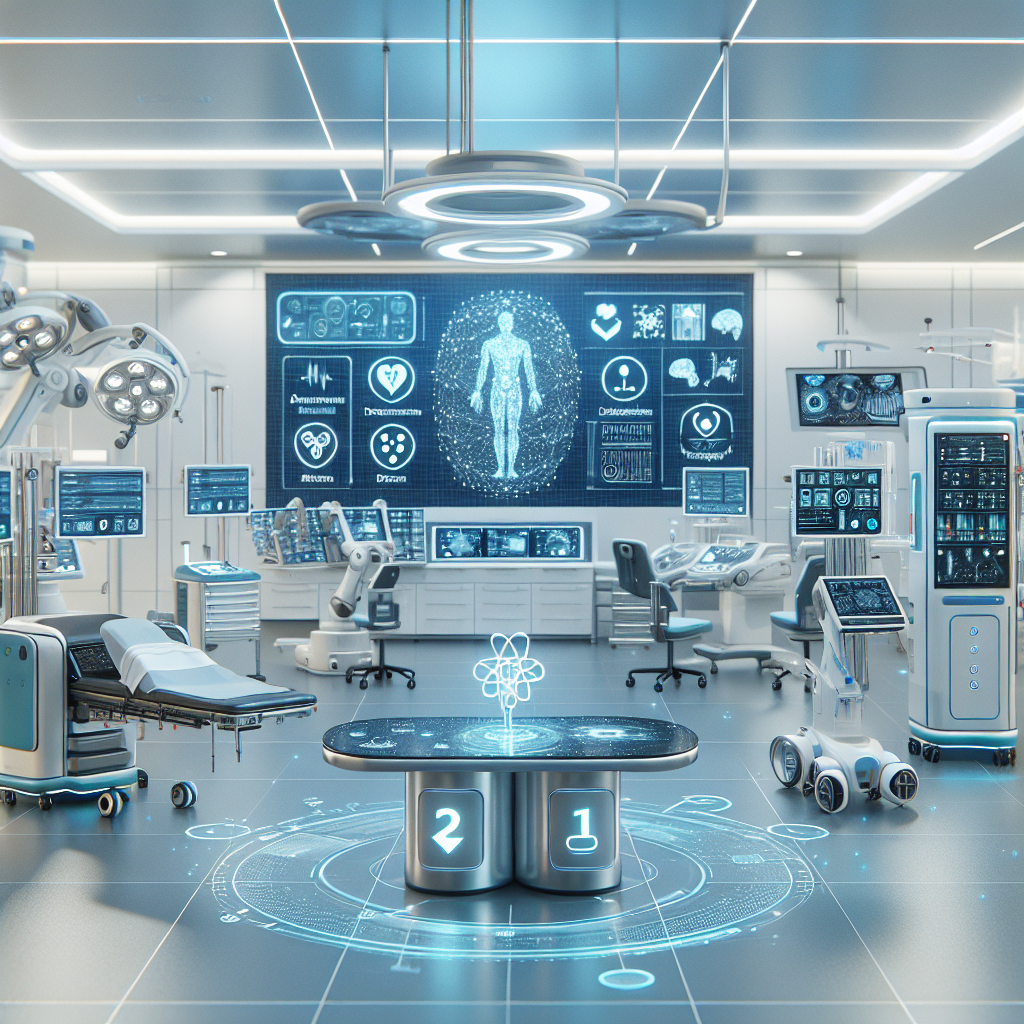Artificial intelligence (AI) has revolutionized many industries, and healthcare is no exception. The use of AI in healthcare has the potential to improve patient outcomes, increase efficiency, and reduce costs. As technology continues to advance, the future of AI development in healthcare looks promising. In this article, we will explore the current state of AI in healthcare and discuss what the future holds for this exciting field.
Current State of AI in Healthcare
AI has already made significant advancements in healthcare, with applications ranging from medical imaging to personalized medicine. One of the most widely used AI technologies in healthcare is machine learning, which involves training algorithms to analyze large datasets and make predictions based on patterns in the data.
Machine learning is being used in a variety of healthcare applications, such as diagnosing diseases, predicting patient outcomes, and identifying treatment options. For example, researchers have developed AI algorithms that can analyze medical images, such as X-rays and MRIs, to detect abnormalities and diagnose diseases like cancer.
Another area where AI is making a big impact in healthcare is in personalized medicine. By analyzing a patient’s genetic information and medical history, AI algorithms can help doctors tailor treatment plans to individual patients, improving the effectiveness of treatment and reducing side effects.
The Future of AI Development in Healthcare
As technology continues to advance, the future of AI development in healthcare looks bright. Here are some key trends that we can expect to see in the coming years:
1. Enhanced Diagnosis and Treatment: AI algorithms will continue to improve in accuracy and efficiency, leading to better diagnosis and treatment options for patients. For example, AI-powered diagnostic tools could help doctors identify diseases earlier and with greater precision, leading to improved patient outcomes.
2. Telemedicine and Remote Monitoring: The COVID-19 pandemic has accelerated the adoption of telemedicine and remote monitoring technologies, and AI is expected to play a key role in these areas in the future. AI-powered chatbots and virtual assistants could help patients access healthcare services remotely, while AI algorithms could analyze data from wearable devices to monitor patients’ health in real-time.
3. Drug Discovery and Development: AI is already being used to speed up the drug discovery process, and this trend is expected to continue in the future. AI algorithms can analyze large datasets to identify potential drug candidates, predict how drugs will interact with the body, and optimize dosing regimens.
4. Predictive Analytics: AI algorithms can analyze large datasets to predict patient outcomes, such as the likelihood of developing a particular disease or the risk of complications during surgery. By using predictive analytics, healthcare providers can intervene earlier and provide more personalized care to patients.
5. Ethical and Regulatory Considerations: As AI technologies become more advanced and widespread in healthcare, there will be a need to address ethical and regulatory considerations. Issues such as data privacy, bias in algorithms, and accountability for AI decisions will need to be carefully considered to ensure that AI is used responsibly and ethically in healthcare.
Frequently Asked Questions
Q: What are some of the challenges of implementing AI in healthcare?
A: Some of the challenges of implementing AI in healthcare include data privacy concerns, regulatory hurdles, and the need for specialized skills and expertise to develop and deploy AI algorithms. Additionally, there may be resistance from healthcare providers and patients who are skeptical of AI technologies.
Q: How can AI improve patient outcomes in healthcare?
A: AI can improve patient outcomes in healthcare by enabling earlier and more accurate diagnosis of diseases, identifying personalized treatment options, and predicting patient outcomes. By leveraging AI technologies, healthcare providers can deliver more effective and personalized care to patients, leading to better outcomes.
Q: What are some examples of AI applications in healthcare?
A: Some examples of AI applications in healthcare include medical imaging analysis, personalized medicine, predictive analytics, drug discovery, and telemedicine. AI technologies are being used to improve diagnosis, treatment, and patient care across a wide range of healthcare settings.
Q: What are some ethical considerations when using AI in healthcare?
A: Some ethical considerations when using AI in healthcare include ensuring patient data privacy and security, addressing bias in algorithms, and maintaining transparency and accountability in AI decision-making. Healthcare providers and policymakers will need to carefully consider these ethical considerations to ensure that AI is used responsibly and ethically in healthcare.
In conclusion, the future of AI development in healthcare looks promising, with the potential to revolutionize the way healthcare is delivered and improve patient outcomes. As technology continues to advance, we can expect to see AI technologies playing an increasingly important role in diagnosis, treatment, and patient care. However, it will be important to address ethical and regulatory considerations to ensure that AI is used responsibly and ethically in healthcare. By leveraging the power of AI, healthcare providers can deliver more effective and personalized care to patients, leading to better outcomes for all.

